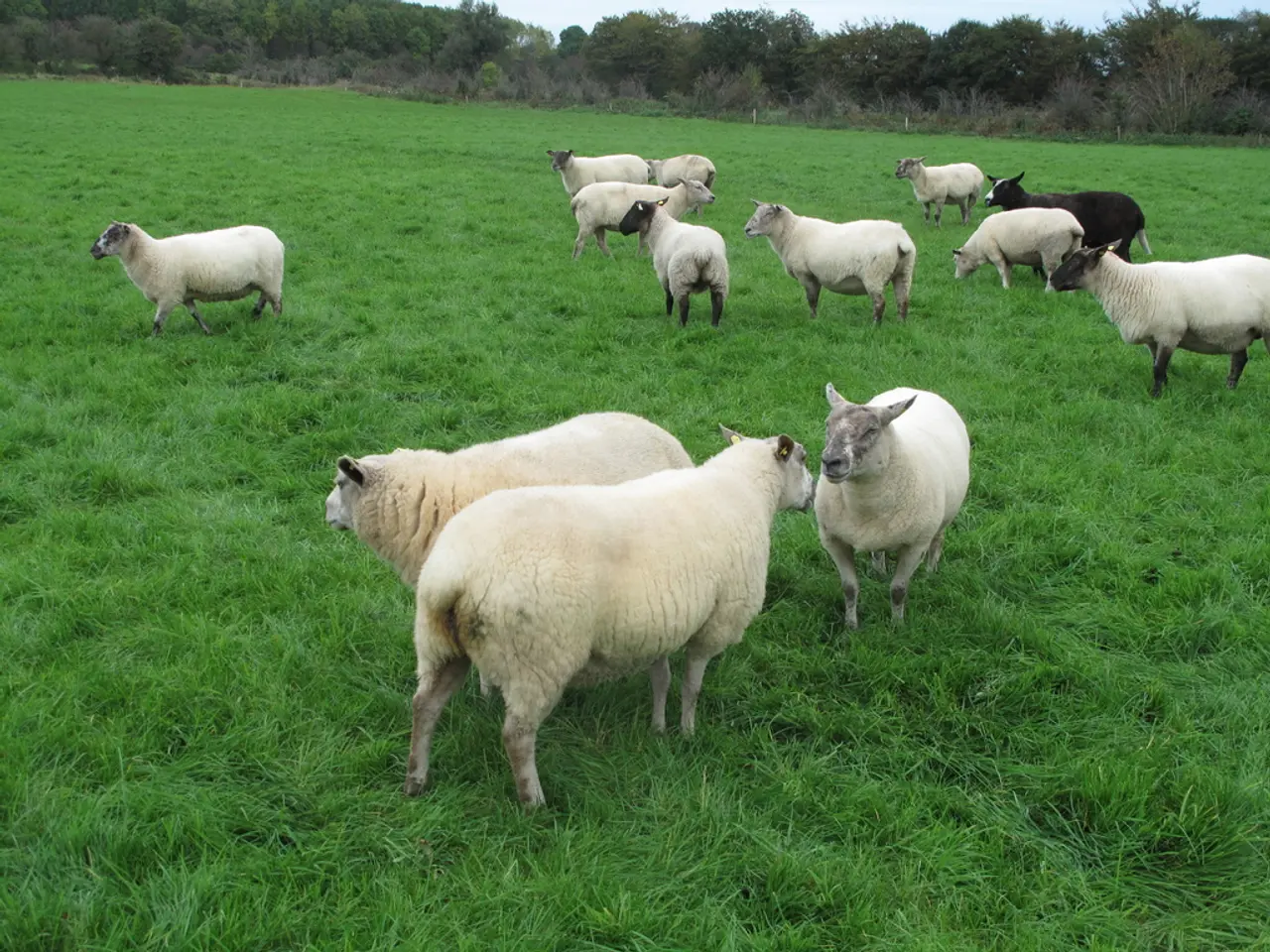At Atkins Ranch, the strategic use of regenerative farming methods is boosting sheep farmers' finances
Atkins Ranch: Pioneering Regenerative Lamb Production
Atkins Ranch, founded in the 1980s by John Atkins and Philip Guscot, has made a name for itself as the world's first lamb producer to achieve both non-GMO Project verification and Global Animal Partnership Step 4 accreditation. Based in New Zealand, a climate ideal for lamb farming, the ranch is a founding member of the Savory Institute Land to Market Regenerative Leadership Council.
The ranch's mission extends beyond producing high-quality lamb. For the next 12 to 24 months, Atkins Ranch aims to contribute to a healthier ecosystem and earn further premiums through storytelling. This focus on regenerative agriculture is centered around the belief that better soil leads to healthier plants, animals, and people.
Atkins Ranch communicates its regenerative philosophy to farmers by emphasizing practical techniques such as soil health monitoring, composting, agroforestry, and water harvesting systems. These practices are taught in an integrated, holistic approach that also focuses on social restoration — building trust, cooperation, and shared purpose among farmers to move beyond subsistence toward thriving regenerative enterprises.
Key aspects of Atkins Ranch's regenerative agriculture include soil health monitoring with simple tools to assess microorganisms and nutrient levels, organic matter restoration through composting, integrating trees and diverse plants to boost biodiversity and moisture retention, and water management techniques to maximize scarce water resources.
Atkins Ranch's retail partnerships are primarily in the US, but the animal-raising part of the business remains in New Zealand. The ranch wants consumers to appreciate the respect given to the lamb and the environment throughout its life, aiming to maximize nutrient potential and contribute to a healthier planet.
However, the ranch is not immune to challenges. US tariffs impact the business, with some products potentially becoming cost-prohibitive and reducing demand and supply. Despite this, Atkins Ranch remains committed to its regenerative philosophy and aims for growth and awareness, focusing on retailers and customers interested in regenerative agriculture and willing to pay a premium for it.
In terms of sustainability, Atkins Ranch is working towards eliminating single-use plastics, using recycled plastics where possible, and exploring biodegradable plastics or plastic composites. The ranch's partnership with Carbon Crop allows for the measurement of carbon sequestration for trees on Atkins Ranch farms, enabling the company to tell the story of farmers' land development and biodiversity creation to consumers.
Atkins Ranch's approach to regenerative agriculture is not just about producing better products, but also about leaving the farm in a better state for future generations. As Pat Maher, CEO of Atkins Ranch, emphasizes, communicating the concept of regenerative agriculture to farmers requires a focus on understanding their unique ecosystems and continuous improvement.
References:
[1] Regenerative Agriculture Development Corporation. (n.d.). Regenerative Agriculture. Retrieved from https://radc.coop/regenerative-agriculture/
[2] Savory Institute. (n.d.). Land to Market. Retrieved from https://savory.global/land-to-market/
- Atkins Ranch's commitment to regenerative agriculture extends beyond the production of high-quality lamb, also focusing on the intersection of science and environmental-science, aiming to create a healthier ecosystem and earn premiums through storytelling.
- The ranch's regenerative philosophy is not confined to the farming industry alone; it also influences its retail partnerships, with a focus on consumers who value regenerative agriculture and are willing to pay a premium for it.
- In addition to regenerative agriculture, Atkins Ranch is also mindful of its carbon footprint, working towards eliminating single-use plastics, using recycled plastics, and exploring biodegradable plastics or plastic composites.
- With its regenerative approach to business, Atkins Ranch embodies entrepreneurship and technology, seeking growth and awareness in the retail space, and collaborating with organizations like the Savory Institute and Carbon Crop for technological innovations and environmental solutions.




